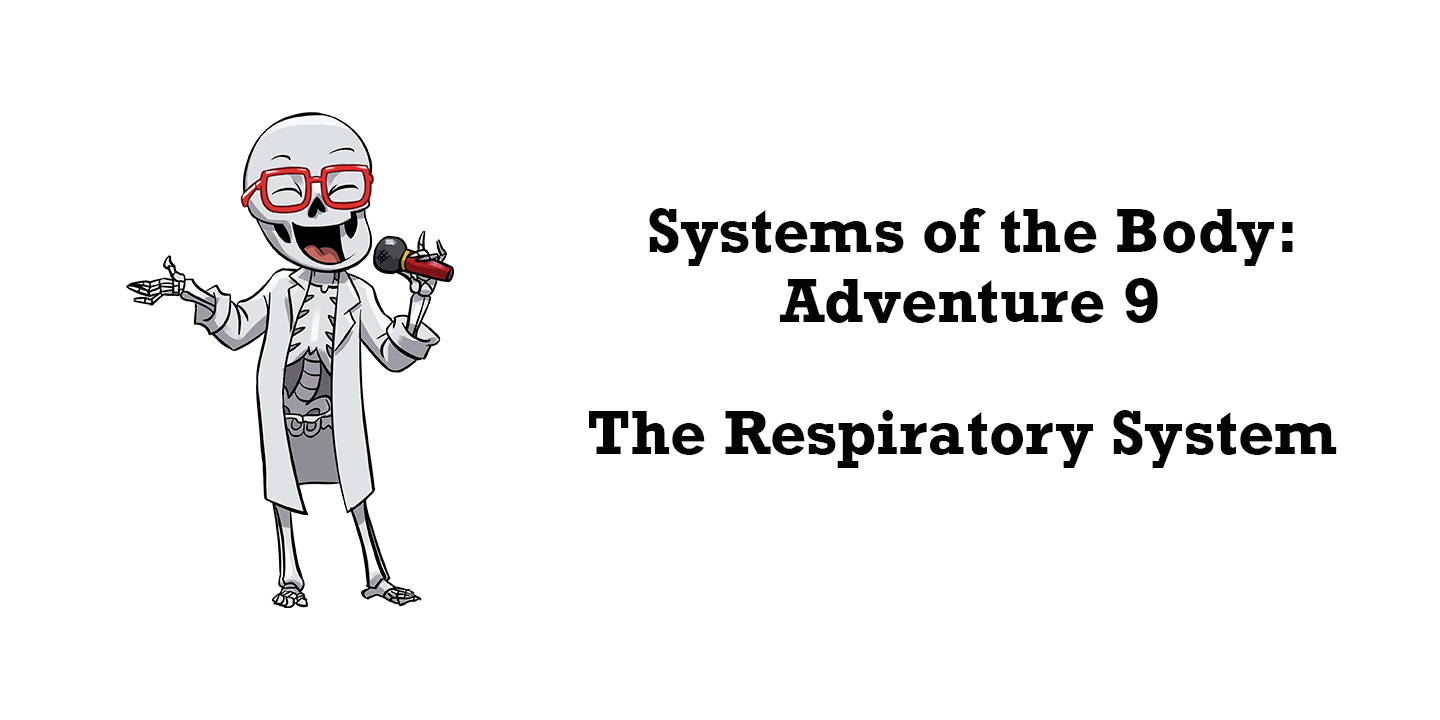
Welcome back, Know Yourself-ers! This week is all about the respiratory system, and I can tell you’re lunging to hear more! Wait no longer, because I’m here to give you a wide breadth of knowledge. I know the respiratory system is complex and detailed, but with a bit of teamwork, I’m sure we can bring it down to sighs.... You’ve brought us great questions about the passage of air through our bodies, and the answers, my friends, are blowing in the wind!
This summer I’ve been hearing people talk about hay fever. Can hay give me a fever or make me cough?
A: Yeah, the grown-ups really did a number on you by naming it hay fever. Perhaps I can clear the air. First of all, hay fever isn’t actually a fever, and it’s rarely brought on by hay. Hay might make you cough, but you’d be one of a rare few to whom it does. Secondly, hay fever is the informal name for allergic rhinitis (Say it like this: rie-NIE-tuhs), or the allergies some people get in the summer - but why would they name it “hay fever” if it doesn’t have to do with hay or fevers?
In the 19th century (that’s the 1800’s, speaking of naming things in confusing ways), folks thought that the smell of hay in summertime caused bodily irritation. Sometimes hay was the culprit, but far more often the real offender was a substance much sneakier and harder to spot -we know it as pollen. Unfortunately, when a physician named Charles H. Blackley figured this out 30 years later, the term ‘hay fever’ was already part of our vocabulary.
Pollen isn’t the only cause of hay fever. Dust and “pet dander,” the sheddings of cats and dogs, can trigger an allergic reaction within you - we call these triggers allergens (Say it like this: a-ler-jin).
When an allergen enters your respiratory system, it can set off a false alarm that causes your immune system to mistake it for an invader. Recall from Adv. 6 that your immune system responds to viral invaders by creating antibodies[note for web design: link to Adv. 6materials]. The immune system does just that - it forms antibodies to fight the allergen, even though it’s harmless. Each time you encounter the allergen thereafter, the new antibodies alert the immune system, which responds by releasing histamine (Say it like this: HI-stuh-meen).Histamine is a hormone, and we remember from Adv. 8 what they do[note for web design: link to Adv. 8 materials]- they tell your cells to do stuff! In this case, they tell your cells to sneeze, cough, irritate your eyes, or make your nose run.
The good news is, then, you’re not actually sick. The bad news is that sometimes the overreaction of a mistaken immune system can be the sickness itself. This is the case with asthma (Say it like this: AZ-muh). Asthma is a fairly common condition - if you don’t have it, you probably know a friend who does. Asthma causes the pipes in your respiratory system to swell and make mucus, which can induce coughing and difficulty breathing. Asthma can’t be cured, but can be treated in a bunch of ways, so those who have asthma should keep in touch with their doctor about it. On the plus side, asthma isn’t contagious, so if you’re hanging out with an asthmatic friend, you can breathe easy!
I love to go swimming, but I can’t hold my breath underwater for very long. What can I do to hold my breath longer?
A: To start, congratulations for challenging yourself! Holding your breath for SHORT intervals can have health benefits, like preserving your stem cells, upping resistance to bacterial infections, and maybe even regenerating brain tissue (it works in newts, we’re still not sure about humans). However, like all forms of medicine and exercise, too much can be harmful. We’ll get to what happens if you overdo it, but first, here are some safe ways to increase your lung capacity.
First, breathe from your belly. This means when you take a breath, be sure your belly is puffing out and your shoulders aren’t rising. Taking a belly breath allows your diaphragm (Say it like this: DIE-uh-fram) to fully contract, allowing maximum air into the lungs. Second, relax your muscles. Muscles at work need more oxygen, which means you’ll need to take more breaths. Finally, you can do tricks to train your lungs to store oxygen. Prior to taking the plunge, hold your breath for as long as you feel comfortable, and record your time on a sheet of paper. Then, breathe normally for 2 minutes (Don’t do this alone! Have a trusted adult supervising). Hold your breath again and see how long you last. Record the result, then breathe normally for two more minutes. Take another big breath and go once more. As you do this, your breath holding time will probably increase, because your lungs begin storing reserve stashes of oxygen during your two minute breaks - they’re preparing for another breath holding session. This exercise isn’t meant to go on forever, so don’t hold your breath past a minute.
Note: If you feel dizzy or lightheaded while holding your breath, stop. Just stop. That’s your body asking for oxygen, so listen. There’s no shame in breathing. Everyone does it.
I don’t know who wrote that note up there, but she or he must be really smart! Your body needs oxygen - oxygen gives your cells the fuel to derive energy from glucose. Oxygen deprivation is nasty business - just thinking about it gets me choked up! - and can cause a carbon dioxide (CO₂) buildup in your bloodstream or a slowed heart rate. Excessive oxygen deprivation can lead to a condition called cerebral hypoxia (Say it like this: sir-EE-bruhl hie-POCK-see-uh). Cerebral hypoxia happens when your brain doesn’t get enough oxygen, which it needs a lot of - roughly 20% of the oxygen in your body. When cerebral hypoxia occurs, your brain cells start dying from oxygen deprivation, which can cause you to become disoriented and slur your words, and in more extreme cases can lead to long-term memory loss, personality changes, faulty judgment, or impaired vision. Holding your breath is unlikely to cause cerebral hypoxia; that’s because if you hold it for too long, you’ll pass out and start breathing again - that is, of course, if you’re on land. If you’re in the water, the water can get in the way of the “breathing again” part, and that’s when it would, quite literally, go down. That being said, not breathing until you black out on land isn’t healthy either. The brain cells you kill by doing so won’t come back. Some day in the future we might develop ways to revive them, but this is unlikely, so don’t hold your breath!
Sources:
https://www.historyextra.com/period/7-facts-about-the-history-of-hay-fever/
https://www.mayoclinic.org/diseases-conditions/hay-fever/symptoms-causes/syc-20373039
https://www.mayoclinic.org/diseases-conditions/asthma/symptoms-causes/syc-20369653
https://www.healthline.com/health/holding-your-breath#benefits









Leave a comment (all fields required)